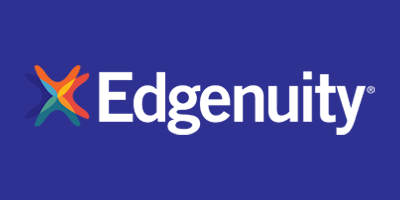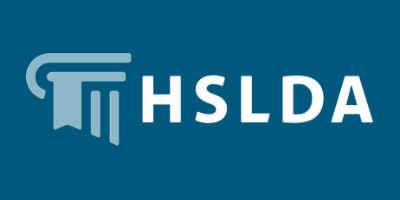Georgia Homeschool Information
—Homeschool In Georgia—
Homeschooling in Georgia
NFC Academy Homeschool Programs For Your Homeschool





Find Out What the State Says About Home Education
Georgia Promise Scholarship
Click above for general information on the school voucher plans.

Georgia Department of Education
Click above for the Georgia Department of Education
Georgia Homeschool Summary

If parents in Georgia enroll their child in a private accredited online school, whether in-state or out-of-state, the impact on their homeschooling status depends on how the school is structured and the role of the parent. Here’s what you need to know:
✅ If Enrolled in a Private Accredited Online School:
🔹 Not Considered a Homeschooler
-
If the online school is fully accredited (SACS, Cognia, or similar) and functions as a private school of record (keeps transcripts, issues diplomas, provides certified teachers):
-
Parents do not need to file a Declaration of Intent (DOI).
-
The student is legally considered enrolled in private school, not a homeschooler.
-
🔹 Requirements Shift to the School
-
The school is responsible for:
-
Curriculum delivery
-
Instruction and assessment
-
Attendance records and progress tracking
-
Graduation and diploma issuance
-
⚠️ But If Parents Are the Primary Instructors:
-
If parents enroll in an online program but maintain full responsibility for instruction, grading, and administration (e.g., parent-led programs like Abeka Academy or BJU Press Parent-Led), then:
-
The family must still file a DOI.
-
The student is still considered homeschooled under Georgia law.
-
Parents remain responsible for testing, reporting, and instructional time.
-
📍 In-State vs. Out-of-State Online Schools
-
Georgia does not require the online school to be located in the state if:
-
It is fully accredited by a recognized agency.
-
It operates as a private school of record.
-
Georgia K-12 Scholarship Programs

b. Tuition Tax Credit Scholarships (GOAL Program)
-
Since 2008, donors receive a 100% state tax credit for contributions to Student Scholarship Organizations (SSOs) that fund private school tuition
-
State cap: $120 million/year; individual cap: up to $2,500 ($5,000 joint)
-
Families cannot utilize this alongside the Georgia Promise Scholarship
3. Charter & Public School Transfers
-
Georgia supports charter schools and inter‑district/intradistrict public school transfers
-
Additional state incentives include $500,000 in funding for charter authorizations in 2025
4. Homeschooling
-
Parents must file a Declaration of Intent annually (by Sept. 1 or within 30 days of starting) with the GaDOE
-
Homeschool must cover core subjects at least 180 days/4.5 hours per day (exceptions apply)
-
Norm-referenced testing is required every 3 years starting in 3rd grade; results are kept by families—not submitted to the state
-
Families can use Promise Scholarship funds to purchase homeschool curriculum, supplies, technology, tutoring, and therapies .
Georgia Scholarship Summary
ere’s an overview of Georgia’s school choice programs, including funding for private schools and homeschooling:
🎓 1. Georgia Promise Scholarship (ESA/Voucher Program)
A landmark Education Savings Account (ESA) program, passed in April 2024 as Senate Bill 233, effective for the 2025–26 school year:
-
Amount: Up to $6,500 per student annually
-
Funding cap: Statewide limit of 1% of K‑12 funding (~$141 million–$144 million), enough for ~21,000–22,000 scholarships
-
Eligibility (2025–26):
-
Student zoned to a public school in the bottom 25% academically—or qualifying kindergartner from that zone
-
Parent resident in Georgia ≥ 1 year (waived for active-duty military)
-
Must either have attended the public school for two semesters or be a new K entrant
-
Priority given to households ≤ 400% federal poverty level (~$100k–$128k family of 3–4); remaining spots via lottery
-
IEP/504 plans and active-duty military also qualify
-
-
Eligible uses:
-
Private school tuition & fees (must be accredited and in‑state)
-
Homeschool curriculum and materials
-
Tutoring, therapies (speech, occupational, etc.), standardized testing, technology, transportation, even dual‑enrollment
-
-
Oversight:
-
Private schools must be Georgia-based, accredited (or seeking it), report test results, and students must take annual norm‑referenced/state tests
-
-
Scale and scope:
-
Official rules allow any student zoned in a low‑performing school—not just attendees—boosting eligibility to ~400,000 students
-
2. Other Private School & Homeschool Options
a. Georgia Special Needs Scholarship
-
Provides full vouchers for students with IEPs or 504 plans choosing approved private schools .
-
Annual award equals the K‑12 state funding the public school would have received.
Homeschool Resources for Georgia
Homeschooling has been part of education for centuries. In earlier times, it was simple to begin without worrying about rules or oversight. Today, however, homeschooling regulations vary by state, and some families may find it more challenging to get started. That’s why NFC Academy provides helpful state-specific pages outlining homeschool laws—to guide and support you as you begin your journey.
In areas with stricter requirements, having reliable support is important. Organizations like the Home School Legal Defense Association (HSLDA) offer valuable legal guidance and protection, helping families stay informed and confident. With the right tools and resources, homeschooling can be a rewarding and manageable experience, no matter where you live.
Information on this page is intended for informational purposes for homeschool families in the specific state. The information supplied does not, nor is it intended to, provide specific legal advice. For specific legal advice, we recommend you consult an attorney. Membership with Homeschool Legal Defense may provide legal information for your situation, but you may prefer a local private attorney to review your situation to provide specific legal advice.



